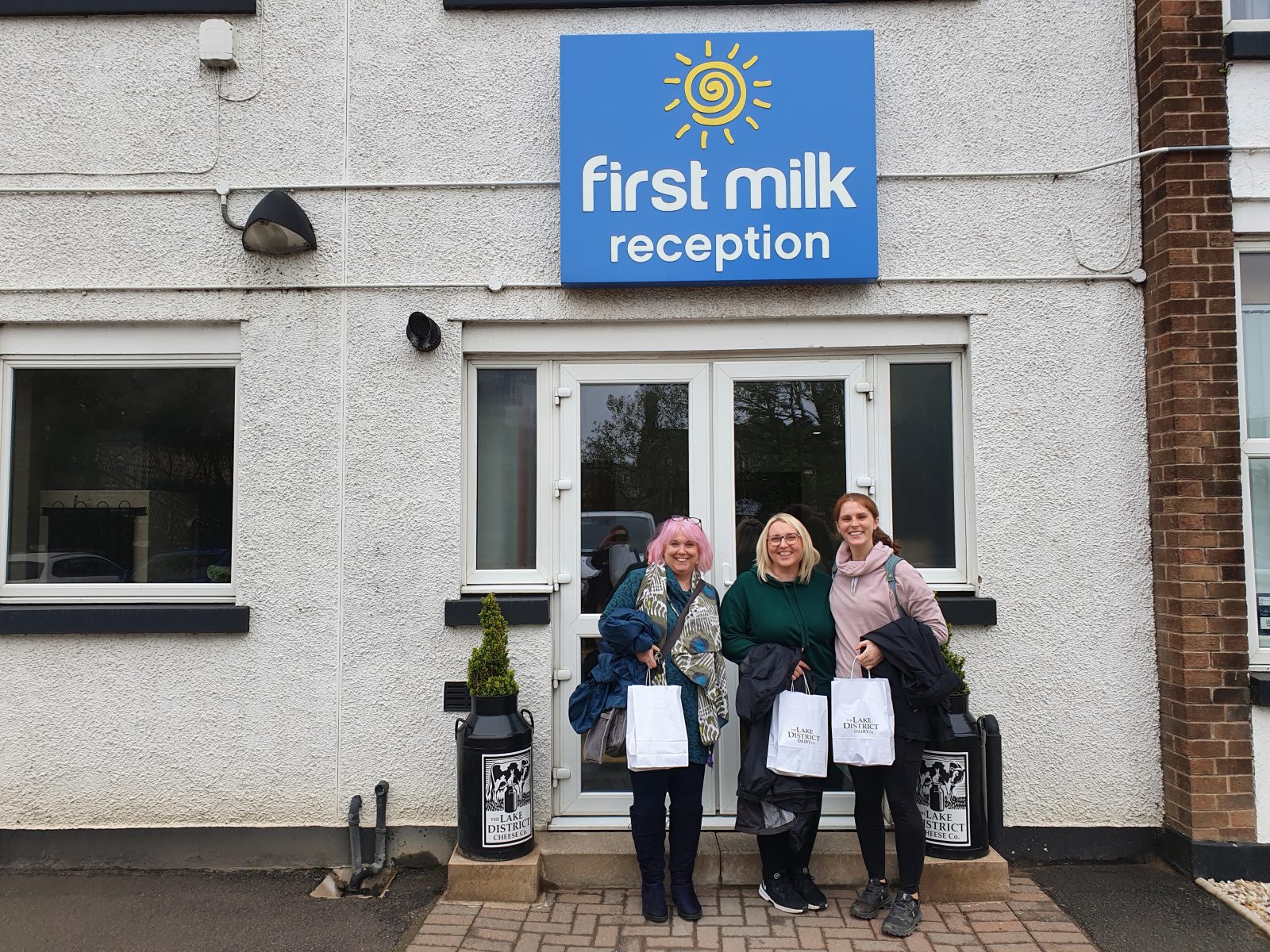Strength in Places has helped to build new collaborations in SW Scotland and Cumbria. The Digital Dairy Chain project has seen Glasgow-based charity SmartSTEMs and Scottish Innovation Centre CENSIS, team up with national dairy cooperative First Milk to raise awareness of career and business opportunities in the dairy industry.
Supporting a local mainstay
Dairying is a major industry in the rural areas of SW Scotland and Cumbria but the number of young people choosing a career in dairy is declining. Across farming in general, a reduction of two thirds among those aged under 25 has been seen in the last decade.
The Strength in Places project hopes to help stop the decline. This latest collaboration brings together First Milk, the leading dairy employer in the region, SmartSTEMs, set up to motivate young people about science, technology, engineering and mathematics (STEM) and CENSIS, a Scottish Innovation Centre which helps organisations build digital capability into their operations and services.
SmartSTEMs works collaboratively with tertiary education, industry and schools, hosting events to bring these three sectors together. In this project, SmartSTEMs is hosting events across the region to excite young people about the options available to them locally and the role STEM plays in the dairy industry. It is using industry role models to highlight the breadth and variety of jobs the dairy industry offers.
The role of CENSIS in this project is to launch an enabling technology accelerator competition called the Milk Round. Using its expertise in sensing, imaging and IoT technologies, CENSIS will support new businesses, start-ups, entrepreneurs or mature SMEs to fast track an idea from proof of concept to demonstrating and testing. By participating in the accelerator, enabling technology businesses in the region will be able to offer innovative products to the local dairy sector and beyond.
Preparing to promote the dairy industry
Coming largely from education rather than agriculture, the SmartSTEMs team recognised it needed to know more about the industry it’s promoting. CENSIS was also keen to understand what’s important to farms, dairies, food and drink manufacturers and their networks. To increase their knowledge of all things dairy, First Milk hosted colleagues from SmartSTEMs and CENSIS at their Lake District Creamery in Aspatria and a member farm supplying milk destined for Nestlé’s Dalston plant near Carlisle.
“Visiting a dairy farm and a creamery has hugely helped us understand not only the manufacturing process but also the range of jobs involved, including farmers, hauliers, milk testers, the packaging process and many more,” remarked Emma Bodiam from Smart STEMs.
Rachel Wakefield from CENSIS said: “The creamery visit was really interesting and the efficiency of the whole process impressive. It drove home to me the importance of quality and maintenance and how everything is finely balanced. It also helped my understanding of how creameries are innovating to help meet net zero goals.
“The farm visit was also fascinating. The farm is moving towards more holistic practices acknowledging the link between healthy soils, biodiversity and milk quality from grass-fed dairy herds. Soils are key to our rural areas being able to support carbon-sequestering practices which unlock the carbon economy for the dairy farm. I am excited to see what kind of ideas come through the accelerator in response to the challenges and opportunities coming through the project partners.”
Their host Ashley Stamper, Programme Manager at First Milk, commented: “We were delighted to host the visit to our creamery and a member farm to widen the team’s appreciation of the exciting opportunities available in the dairy industry. I think they were surprised just how much we have to offer.”
Through First Milk, the SmartSTEMs team also attended a two-day course run by the Countryside Educational Visits Accreditation Scheme (CEVAS), specifically designed for those organising educational farm visits.
“We discovered the many aspects of what’s needed to host a safe visit to a working farm,” said Emma. “We also learnt how to conduct workshops and activities based on different aspects of farm life from the importance of hedgerows to the technology used to monitor cows. This will really support our activities over the next five years as taking young people onto farms is set to be a vital part of our work.”




